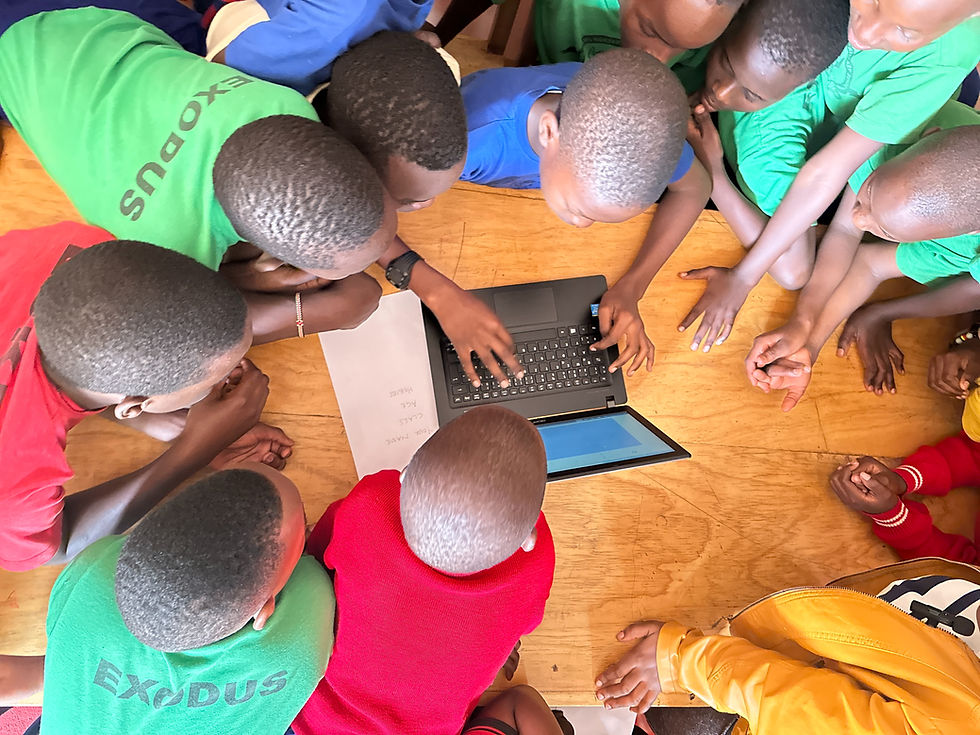The Laptop That Changed Nothing: Why Dropping Devices Without Training Deepens Africa's Digital Divide Instead of Closing It
- Princess Sibanda
- Jul 13, 2025
- 3 min read
Updated: Jul 14, 2025

I was 10 years old in Grade 5, the first time I saw a laptop.
An NGO had come to donate one to our school in Matobo, Matabeleland South, Zimbabwe. The excitement was electric. We all crowded around, eyes wide, buzzing with curiosity. It felt like a glimpse into another world, a bright, promising one.
But that moment lasted only minutes. There was one laptop, and that day was the first and last time most of us saw it. We never got to touch it again. There was no internet, no training, no integration into our learning. The screen arrived, but the skills never did.
That is the reality for many students in rural communities like mine. The digital divide is not just about missing devices; it is about missed opportunities. It is about being told you need to thrive in a digital world, but never being given the tools, training or confidence to do so.
Only a few, maybe 10 per cent, of students from our village ever made it to better resourced boarding schools or urban areas where computers were more available. Yet even there, the gap followed us. I remember standing at the back of the computer lab, afraid to go near the machines. I did not want to be laughed at for not knowing how to use them. The shame, the fear, it was real.
By then, I was a teenager, and it had taken me four years to work up the courage to walk into a library and sit at a computer on my own. Even then, computer lessons were considered optional, a luxury, not a necessity. The few students who had early access were seen as ‘computer gurus’. The rest of us stayed quiet. We watched from the sidelines.
That is the true face of the digital divide in Africa: not just a lack of gadgets, but a lack of confidence, exposure and inclusive digital education.
Today, I know better. I understand that a screen without skills is just glass. I also know that real digital inclusion means meeting young people where they are, not just dropping off devices and taking pictures, but building ongoing programmes, training, mentorship and infrastructure that lasts.
That is why, at LeNoir Foundation, we focus on empowering youth with skills, not just screens. We work in communities like mine, co creating solutions with schools, teachers and families. We train, mentor and support because we know what happens when young people are left behind, and we believe in what is possible when they are brought forward.
This is not charity. It is justice. It is about closing the gap, not just in hardware, but in hope.
If this story resonates with you, if you see yourself as that 10 year old or recognise the potential being wasted, then join us in rewriting this narrative. LeNoir Foundation makes it simple and transparent for anyone to sponsor both laptops AND the digital literacy training that makes them meaningful for students in Uganda and Zimbabwe.
We're not asking you to drop devices and walk away. We're inviting you to invest in lasting transformation where every sponsored student gets ongoing training, mentorship, and the confidence I wish I'd had at 16.
For those working in education, tech, or development: let's partner to scale solutions that work. For everyone else, your support turns missed opportunities into realised potential.
The gap can be closed. The question is: will you help us close it?


Comments